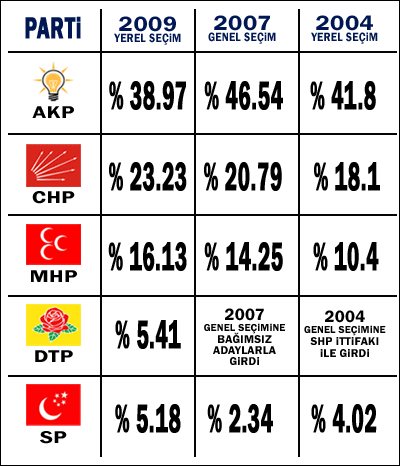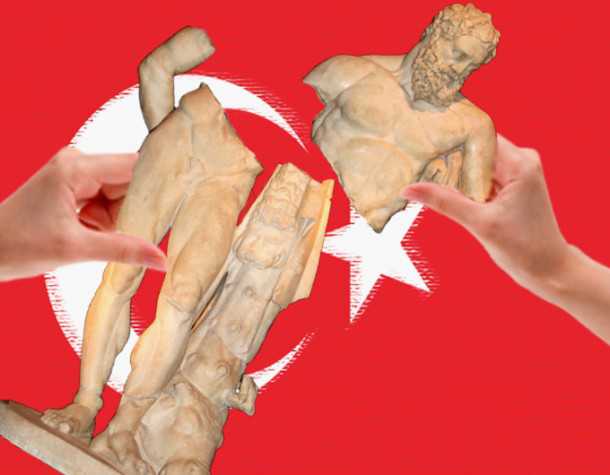By Utku Çakirözer
Reporter, Milliyet
Ankara, Turkey

President Obama visits Turkey this weekend on his first overseas trip as U.S. president, and he sets a milestone by doing so: other U.S. presidents have always visited Ankara much later in their terms of office. This isn’t a coincidence or a tiny detail. It represents a significant shift in fundamental foreign policy priorities under the new U.S. administration. I believe there are two main reasons for Obama to choose Turkey: The necessity to increase security cooperation and to reshape the global image of the United States in the aftermath of the Bush era.
Obama’s presidency has put many Turks on edge, especially those in government; there’s a general sense in Ankara that the more security-oriented U.S. Republican party appreciates Turkey’s importance more than the Democrats do. But Obama’s visit seems poised to dismiss that cliché; his pragmatism in international diplomacy, including public diplomacy, will put an early mark on his presidency as well as his administration’s foreign policy.
Prior to his journey, Mr Obama underlined that his priority in foreign policy would be to deal with al-Qaeda terrorism and declared he would send more U.S. troops to Afghanistan. But his plan will only be sustainable with the contribution of his NATO allies. Turkey, on the other hand, has NATO’s second-largest armed forces and has historically been a staunch ally to the U.S. in many peace and stability missions throughout the world (the only exception being the Turkish Parliament’s rejection in 2003 to allow U.S. troops to invade Iraq through Turkish territory.) Since the beginning of the war in Afghanistan, Turkey has been a permanent participant of that multinational force as well. After the talks in Ankara between Obama and the Turkish leaders, one can expect a visible increase in Turkey’s military and civilian presence in Afghanistan, with which Turkey had enjoyed a long history of friendly relations. Turkey can also help the U.S. in its efforts to win the hearts and minds of the Afghan people.
Turkey can also play a crucial role serving as a main logistics hub for the implementation of Obama’s second priority in world affairs: Pulling the troops out of Iraq. Turkey’s government is already indicating support for potential U.S. use of Incirlik Air Base and the port of Mersin.
Last year, Istanbul was the venue not only for Iranian leader Mahmoud Ahmedinejad’s visit but also for the new round of peace negotiations between Israel and Syria. So President Obama will also look for ways of cooperation with Turkey to deal with Iran’s nuclear program and the Middle East Peace Process.
Mr Obama’s second reason to visit Turkey aims to deal with a much deeper problem. During the Bush administration, the very strong anti-American (or shall we say anti-Bush-policies) sentiments in Turkey have been an issue of deep concern for both capitals. According to Pew Center polls, America’s favorability rating in Turkey in recent years has fluctuated between 9 and 12 percent, far behind Russia, Iran and Syria. According to the latest polls during the electoral campaign, skepticism toward Obama was still higher in Turkey than it was in other European countries, and relatively few Turks believed that American foreign policy would improve under the new administration.
In sharp contrast with the Bush administration’s preemptive diplomacy, there have been glimmers of hope for many Turks since Obama’s election. The president’s readiness to listen to allies and friends in world affairs, and his early decisions – pulling troops out of Iraq, closing the Guantanamo detention center, opening dialogue with Iran – are all good signs.
But in order to leave this upsetting picture in the past and reshape the global image of his country, the president will need an ambitious public relations program in Turkey. In Ankara he will speak before the Turkish Parliament, a rare honor presented to visiting foreign leaders. In Istanbul, he will come together with young Turkish students in a meeting. Youth organizations throughout Europe, the Middle East and Asia will also participate through videoconference. He might even use the forum of the UN Alliance of Civilizations initiative (co-chaired by the Turkish and Spanish prime ministers), which will take place while he is in Istanbul, as a platform to reach out the Muslim world.
So Turkey the Muslim country he promised to visit in the first 100 days of his presidency? Officials in both capitals try to downplay this, but the fact remains that Turkey is a country with a predominantly Muslim population. But Turkey is also the only constitutionally secular Muslim nation that has for decades been anchored to the Western institutions like NATO and EU. Turkey has been a link between East and West not only geographically but also culturally and historically. And certainly Turkey has demonstrated that there is a third way through which Islam and Western style democracy can coexist despite occasional ups and downs. This is the message that President Obama ought to emphasize in his visit to Turkey with global implications: that a clash of civilizations is not inevitable.
Having said that, Turkish people want to hear the president’s view on where Turkey stands in the eyes of his administration. Stopping at Turkey in his tour to Europe is a clear sign that the president views this country as part of that continent, but Turks wonder whether he is willing to lobby in Europe, as one of his predecessors former president Bill Clinton did in the past, on behalf of Turkey’s most important political project: accession to the European Union. They also want to see Obama stand by their side in their struggle against terrorism. They want to see trust, partnership and confidence re-established in U.S.-Turkish relations. They want to see the new president take the lead in restoring peace, security and prosperity in the region they call home.
Utku Cakirozer is a reporter for the Turkish newspaper Milliyet and a Hubert Humphrey Fellow at the University of Maryland.
Posted by Utku Cakirozer on April 3, 2009 5:38 PM
Comments (11)
Frog2  :
:
Even if is the interest of the US to have Turkey anchored at the EU, it is not in the spirit that led to the creation of the EU.
At first the EU was an association of Western Europe countries in the way to avoid another conflict among them, after two major wars that started there (WW1 and WW2.)
The later expansion was (in my humble view!) a mistake.
The EU should have its natural eastern borders where was the Iron Curtain.
The hypothetic Turkey’s membership would justify the natural candidature of Israel for its historical and cultural roots in the Old Continent with, as a dowry, the Israel Palestinian conflict.
Then would follow, say,Lebanon, the Maghrebian Nations (Algeria, Morrocco and Tunez) for being former European colonies and then the remnant African nations (except Ethiopia and Liberia that were never colonies)
In an other hand, after Poland, why not Ukraine, Bielorussia and then Russia?
And if Russia, why not the US ?Or China?
The claim that the EU nations are white-people nations is unthrue. Get some ride to Paris, London or Berlin and keep a watch if people there are just white Christian ones!
Turkey is in an undeniable great nation that deserve a special status vis-a-vis the EU.
It is a cousin, an ally and a friend, but it is not part of inner familly neither are Israel, Russia and even the US…
Thank you
An average European.
—————————————–
April 5, 2009 12:43 PM | Report Offensive Comment
Posted on April 5, 2009 12:43
Turkey should admit the Armenian genocide, apologize for it, and move on. Even if such an admission is disingenuous. The western democracies are full of such hypocrisies, it will be accepted with few questions and everybody can move on.
I lived in Adana as a teenager, from the age of 13 to 15. My father was stationed at Incirlik AFB.
My friends and I spent time with our Turkish friends, mostly on the basketball court. We never argued about religion, genocide, oppression, none of that crap. At worst we disagreed on how many steps you’re allowed to take when doing a layup and how we Americans didn’t like the Turkish toilets.
We were welcomed as friends, and not just as guests. So I have no problem with the people of Turkey becoming members of the EU
These days I’m living and doing business in Bulgaria (software engineering), and for what it’s worth I know several people of ethnic Turkish ancestry here. I visit Istanbul on occasion for business, a vacation in Izmir is coming this summer and I’m looking forward to that 🙂
So I have to say – it’s the ideologues and the demagogues who are running this conversation these days. I would like to see the Turkish people express their revulsion at the idea that religious authorities can censor the “outside world”, but at the same time I know how widespread software competency is in Turkey and how easily people will be able to get around this censorship.
Time will tell. Turkey is facing pressures from the west to be more secular, and from the islamists to be more fundamentalist. I doubt many countries in Europe can understand that.
I wish you well, Turkey. You have issues you must deal with, and you must dispose of false pride when it becomes a barrier to your progress. I think one day you will join the EU, hopefully soon, and I think it will be a good day when it happens.
—————————-
April 5, 2009 6:01 AM | Report Offensive Comment
Posted on April 5, 2009 06:01
It is doubtful that anything lasting can come out of such a meeting [aide from hot air a la G20] without the USA succeeding in the Palestine/Israel problem. The scene form Davos [under the tutalage of Mr. Ignatius] clearly indicates that Turkey’s Muslim majority wont permit this issue to be sidetracked. The rest is balderdash, for the USA is broke, is in wars opposed by the Muslim Majority and the USA does not take advise from foreigners.
So another foto-opportunity after G20, NATO, and now Turkey — then coomes the problem the USA econopmy, the unwanted and expensive wars, and the military industrial complex.
GOOD GRIEF!! sid Charlie Brown.
—————————————————–
April 4, 2009 3:53 PM | Report Offensive Comment
Posted on April 4, 2009 15:53
Whether the 1915 Armenian genocide (the killing of between a million and 1.5 million Armenian Christians) was more or less than 100 yrs ago is rather irrelevant.
What is relevant is that the very term “genocide” was coined in 1944 to describe that particular Holocaust, and that Turkey has been aggressively trying to deny that Holocaust for the century since.
Read the chapter concerning this genocide in Robert Fisk’s great book about the Middle East, and you will never forget what a genocide can be. It may not have equalled in NUMBERS the Holocaust of European Jews in the 30s and 40s, but in methods used it was even more barbaric (if that is possible) than Hitler’s Holocaust.
I will respect Turkey when it steps forward, acknowledges the genocide, and speaks openly in acknowledging its shame. It is not enough to say, “oh, we were not alive when that happened, and none of the survivors are either.”
———————————————-
April 4, 2009 3:11 PM | Report Offensive Comment
Turkey is a country rich in tradition and history occupying a key position between Europe, Russia, and the Middle East. It is also relatively stable (for the region) and pragmetic. It is an important relationship for the US, and Obama does well in making this visit.
Yet there is also the difficult history with Armenia, and the “genocide” resolution that Obama once promised to support would do much harm. I hope there is a bit of background diplomacy going on here. It would be nice if Turkey could acknowledge the Ottoman’s ethnic cleansing and offer a limited apology, providing sufficient cover for the US Congress to respond with a more limited resolution.————————–
—————————
April 4, 2009 1:55 PM | Report Offensive Comment
Posted on April 4, 2009 13:55
Whew so many thing to comment on and not enough space to do so.
First Turkey is NOT less than 100 years old, unless you mean the republic of Turkey. Turkey itself was the center of the Ottoman Empire, which the Turks created from the Byzantine Empire.
Turkey was not secular by people’s choice, it was a requirement by the UK and UN, as punishment for siding with the Axis Powers in WWI. Either they accepted the terms and put it in the new constitution, or they would partition it further into smaller states.
As for the EU, it is a losing battle. The EU is a racists organization. It will only accept white christian countries. They will never accept a muslim majority country. I thought that they would include Kosovo, but they didn’t.
Turkey would be smarter to stop trying to act like Europeans, and be proud of their heritage. If it is the wealth, that they want then they can forget it. Without oil, no western country is about to make a Muslim nation rich and prosperous.
The Armenian genocide? Come on that was nearly 100 years ago. Are there even anyone alive now who lived through it? Why complain now, why didn’t anyone go after and try the leaders of the former Empire, like they did in Germany and Serbia?
Look two things are not going to happen and everyone just needs to move forward: 1) The EU ain’t gonna allow any non-white non-christian country in its organization. 2) Turkey ain’t gonna apologize for something an old administration and empire did.
————————————–
April 4, 2009 1:24 PM | Report Offensive Comment
Posted on April 4, 2009 13:24
Turkey has more of a history that is open to other Religions and peoples than other mid-east countries. The bigger cities have robust minority religious communities from the Jews in Istanbul and Christian Orthodoxy in Istanbul and other cities. Of course there are backward villages and towns (mostly in the far east) that are more fundamentalist but that is similar to the US.
Turkey is a secular state with a primary Muslim population. Most of its citizens understand why Ataturk founded it as a Secular state and continue to support his blue print. Europe has its own issues with non-Christian cultures so it should deal with that prior to expecting Turkey to solve all of its problems overnight. Turkey is less than a century old and has a long way to grow, but Europe is much much older and dealing with the same issues.
James
———————————————
April 4, 2009 10:36 AM | Report Offensive Comment
Posted on April 4, 2009 10:36
The EU does not look kindly on prison officials fondly embracing the killers of Armenian intellectuals and journalists. The turks still resent other relgions
————————————-
April 4, 2009 8:51 AM | Report Offensive Comment
Posted on April 4, 2009 08:51
In regards to the Kurds… The Kurds have to give-up claims to land within Turkey to end the violence; the cross-border incursions have been going both directions, with Kurdish fighters attacking within Turkey.
As far as religious oppression and what Attaturk would think, I can’t tell you. However, I can tell you that the state has two seperate legal systems: one for religious judgements, and one for common law. It isn’t perfect, but it isn’t as bad as some would have you believe either.
Turkey is one of the few countries left that illustrates that predominately Muslim countries need not be havens of despotism.
————————————
April 4, 2009 7:20 AM | Report Offensive Comment
Posted on April 4, 2009 07:20
Whatever else people are using to resist Turkey’s membership in the EU, censoring the internet for religious reasons only plays into their hands.
There is nothing an American president can do to influence the EU in your favor until you stop this religious oppression. I can only wonder how Mustafa Kemal would felt about this.
——————————–
April 4, 2009 4:38 AM | Report Offensive Comment
Posted on April 4, 2009 04:38
The status of the Kurds needs to be addressed in Obama’s discussions with the Turkish leadership, though I have doubts about that happening.
The Kurds in Iraq need to be guaranteed either autonomy or independence without Turkish troops invading them. Without this there may never be peace in Iraq. If the Turks are afraid of what their Kurdish minority will do if that happens, then there is a problem with the way they are treating the Turkish Kurds.
April 4, 2009 3:17 AM | Report Offensive Comment







 He Says Budget Is Key to Recovery
He Says Budget Is Key to Recovery Video
Video Full News Conference: ObamaPresident Obama held a prime-time news conference Tuesday addressing the economic recession, his administration’s recovery strategy, and other current events during the first 60 days of his presidency. » LAUNCH VIDEO PLAYER
Full News Conference: ObamaPresident Obama held a prime-time news conference Tuesday addressing the economic recession, his administration’s recovery strategy, and other current events during the first 60 days of his presidency. » LAUNCH VIDEO PLAYER
